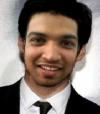Suggest Treatment For Pimples And Blackheads On Cheeks And Forehead

Acne treatment options; visit a nearby dermatologist
Detailed Answer:
Hello. Thanks for writing to us at healthcaremagic
You have a combination skin (Central Oily T zone).
Oily skin and pimples/Acne usually go hand in hand. Acne lesions are usually polymorphic : of various types
--Non-Inflammatory:
-Blackheads / Open Comedones,
-Whiteheads / Closed Comedone
--Inflammatory:
-Papules, Pustules, Nodules etc
You seem to have both Inflammatory (red pimples) as well as Non-Inflammatory Acne lesions (blackheads, whiteheads).
Cleansing is an important step in acne prone/oily skin, at the same time it is essential that you do not overdry your skin because that can do more harm than good.
If I was the treating doctor I would have suggested a gentle cleanser for face wash twice daily rather than a harsh cleanser. A soap or a salicylic acid face wash are harsh, which can over-dry your skin. The disadvantage of using such harsh cleanser is that the more you dry your skin, your oil glands which are already overtime, will get the signal that the surface is dry and hence they in turn produce more oil to compensate the dryness that you may have caused by a harsh cleanser, this causing rebound oiliness.
Therefore it is better to use a gentle cleanser e.g cetaphil cleansing lotion, which does'nt over dry and retains natural skin moisture.
Topically, I usually recommend either benzoyl peroxide gel Or Clindamycin gel to my patients of inflammatory acne/red lesions. They are antibacterial as well as antiinflammatory.
An Night, I usually ask my patients to use a topical retinoid e.g Adapalene gel.
Retinoids are antiinflammatory, comedolytic and are first line treatments for all grades of acne (inflammatory as well as non-inflammatory acne). Thus they are effective for all types of acne lesions blackheads, whiteheads as well as red lesions.
As you also have mostly red lesions, that may be is an indication for oral antibiotics, if you have too many of these.
Oral antibiotics are faster acting and bring about significant improvement in inflammatory acne. However, oral antibiotics have no role whatsoever in non-inflammatory acne (blackheads, whiteheads).
Various antibiotics that can be prescribed for inflammatory acne are either Doxycycline, Minocycline Or Azithromycin.
Finally, oral retinoids are an option in those who have severe acne or acne unresponsive to traditional antiacne medications.
These are all prescription medications (oral as well as topicals) and therefore I would suggest that you seek an appointment with a dermatologist in your region for a proper visual assessment of the severity of your acne and appropriate treatment.
Along with the topical and oral treatment, you may also opt for a few peeling sessions from a dermatologist; salicylic acid peels are very effective for both inflammatory as well as non-inflammatory acne.
Besides, females can have PCOD (Polycystic ovary disease) as the reason for underlying hormonal imbalance and acne.
Irregular menstural cycles, excess coarse facial hairs etc are evidence that may suggest possibility of PCOD.
If PCOD is clinically suspected, it must be followed up with blood test for hormones like serum testosterone (free and total levels), serum dihydroepiandrosterone sulphate ( DHEAS), serum luetinizing hormone (LH), serum follicle stimulating hormone (FSH) and radiological investigations like Pelvic Ultrasound
You can know more about PCOD from your treating dermatologist.
Regards
Answered by

Get personalised answers from verified doctor in minutes across 80+ specialties



